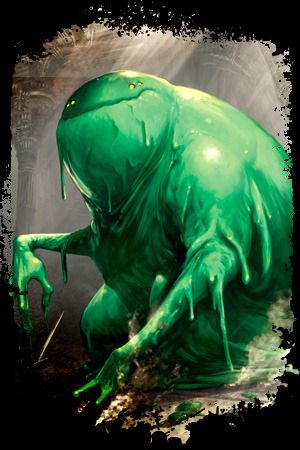Abiogenesis (spell)
Abiogenesis causes the spontaneous birth of non-intelligent creatures, including frogs, toads, mice, rats, worms, eels, beetles and other insects from mud, slime, stagnant water or other decaying substances such as manure or gong pits. The caster may choose the specific place from which each creature emerges within the spell's range.
| Range | 50 ft. |
| Duration | permanent |
| Area of Effect | 2 HD/level |
| Casting Time | 3 rounds |
| Saving Throw | none |
| Level | illusionist (5th) |
Creatures may have either 1 or 2 hit dice, each having 1d6 hit points per hit die, up to the maximum hit dice allowed. For example, a 10th level caster could create between 10 and 20 creatures of varying hit dice. Once the spell is discharged, the creatures' bodies will emerge within 3 to 8 seconds.
Produced rats and mice are filled with disease; frogs can swim and may be large (1HD) or huge (2HD), or they may be poisonous if they have 1 hit die. Spiders cannot swim, but both large (1HD) or huge (2HD) will be poisonous. Toads created are poisonous or not. Worms may include rot grub or unusually sized common lamprey, or one-third sized blood worms. Beetles and most insects will have simply have pincers able to cause 1-2 damage; flying varieties may be created.
None of these creatures can be controlled, except they won't attack any creature that carries an object owned by the caster. Once formed, they will continue to exist to the end of their natural lifespan, stopping to feed or dissipating into the setting once there are no more victims to attack.
